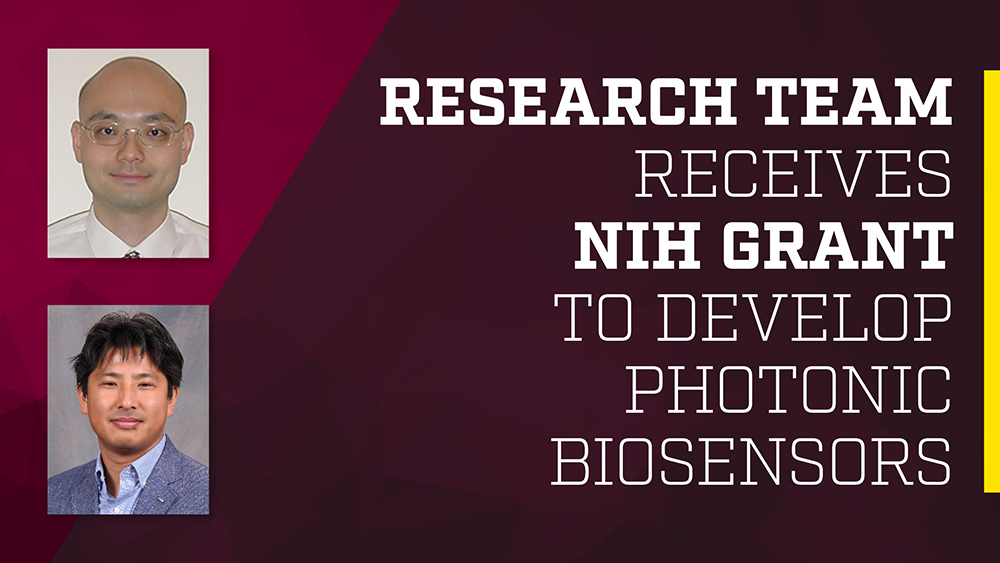
Biopharmaceuticals represent one of the fastest growing product segments in the pharmaceutical industry, with more than $229 billion in global annual sales. Systems that can analyze the production of molecules needed to produce therapeutics can add enormous value to this industry by increasing target molecule output and reducing inefficiencies in the process.
Dr. Arum Han and Dr. Pao-Tai Lin from the Texas A&M University College of Engineering, and Dr. Paul de Figueiredo from the Texas A&M College of Medicine were awarded a grant from the National Institutes of Health (NIH) for their collaborative project titled, “MIRROR: A Chip-Scale Mid-IR Ring Resonance System for On-the-Fly Report of Analytes.” Their project aims to overcome challenges with the generation and monitoring of cells to produce therapeutics and other value-added products.
“Cell-based bioproduction is a very exciting up and coming area of both basic research and translational research, but in-line monitoring of these processes is currently very difficult or costly, so we are trying to develop new sensor technologies with integrated microfluidics to overcome these challenges,” Han said.
The team believes that providing a means for continuous monitoring of the bioreactor used to grow these cells versus occasional monitoring can have significant impact to this growing field. The co-principal investigators are relying heavily on Lin’s photonics work for this research.
“I am very excited about the opportunity to demonstrate mid-infrared integrated photonics for bioproduction,” Lin said. “Mid-infrared has great advantages in cell analyses because of its capability of label-free and real-time reporting. The challenge was how to scale down a benchtop mid-infrared instrument down to the size of a chip. Our strategy is to miniaturize the optical system through complementary metal–oxide–semiconductor (CMOS) processes. Eventually, the mid-infrared-based optical sensors can be embedded into various bio-manufacturing platforms to improve their bioproduction efficiency.”
Han is a professor and Presidential Impact Fellow, and Lin is an assistant professor in the Department of Electrical and Computer Engineering; de Figueiredo is an associate professor in the Department of Microbial Pathogenesis and Microbiology.